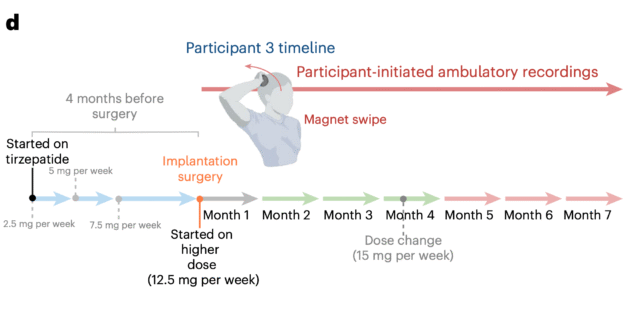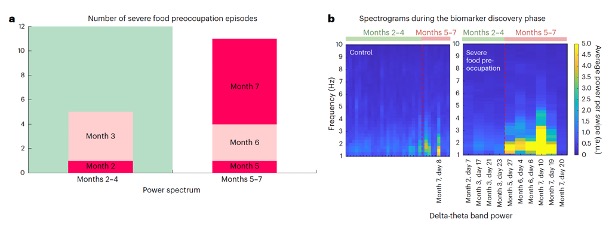Popular drugs for diabetes and weight loss, like Ozempic, Wegovy, and Mounjaro, can have profound impacts on the body, but what about the brain?
These medicines are thought to broadly suppress appetite and enhance feelings of fullness, but the actual way they achieve that in the human brain is poorly understood.
The first in-human investigation of its kind has found that tirzepatide (brand name: Mounjaro) may modulate a specific brain signal, possibly involved in dysregulated eating.
Related: Drugs Like Ozempic Quieten 'Food Noise,' in Our Brains, Study Finds
The study included three participants with severe obesity who had difficulty controlling their eating habits and hadn't responded to previous weight loss treatments.
When participants were dealing with intense thoughts of food or cravings, researchers found a part of their brains, called the nucleus accumbens, produced stronger delta-theta signals. These signals are involved in the reward system of the mammal brain.
All three patients had previously received bariatric surgery, yet they continued to experience distressing food preoccupation. Two of the participants began deep-brain stimulation of the nucleus accumbens, while the third participant had been prescribed tirzepatide for their type 2 diabetes.
Brain activity was measured in all three participants using electrodes that had been inserted into their nucleus accumbens.
Coincidentally, the third participant had their tirzepatide dose upped around the same time as their brain implant surgery. For the next four months, not counting the first, the patient experienced a "profoundly" low number of 'severe food preoccupation' episodes.
During this time, when she did have food cravings, the delta–theta activity in her nucleus accumbens was indistinguishable from times when 'food noise' wasn't experienced.
This was markedly different from the other participants. But the benefits sadly didn't last.

Five to seven months after implantation surgery, the participant on tirzepatide began experiencing increasing cravings and intrusive thoughts about food again, even though she was on the maximum tirzepatide dose.
It was during this time that the delta-theta waves in her nucleus accumbens picked up steam again.
"Our findings raise the possibility that this delta–theta band oscillation could serve as a target engagement biomarker, but its relationship to food preoccupation warrants more controlled investigation," the authors of the study conclude.

Mounjaro, like Wegovy and Ozempic, belongs to a class of drugs that mimic a natural hormone in the body, thereby reducing appetite and slowing digestion.
The current study is very preliminary. What scientists can glean from the results without a control group is limited. That said, as one of the first in-human investigations of Mounjaro's effects on the brain, the findings could help guide future research.
The study was published in Nature Medicine.
